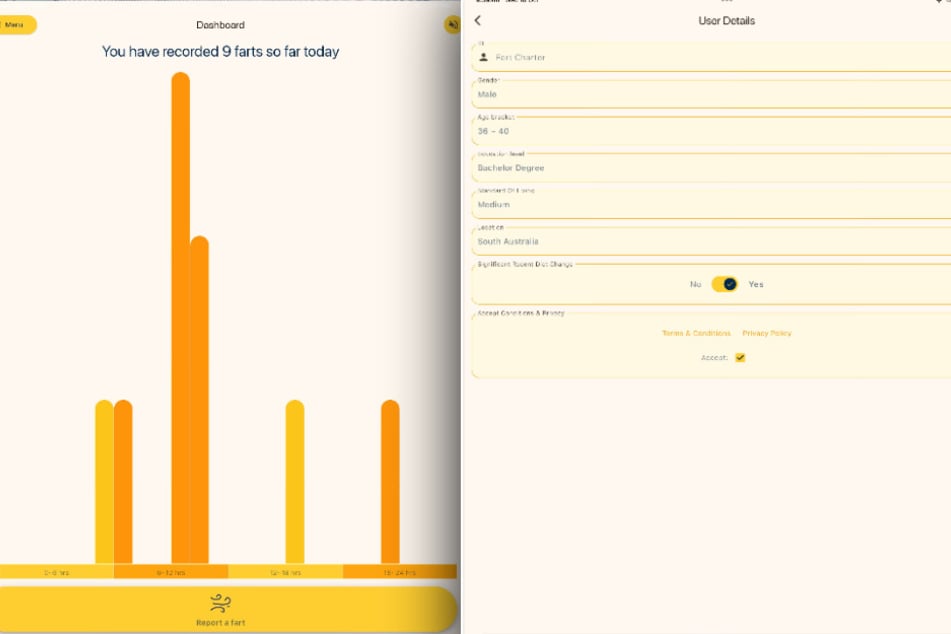Farting expressly permitted: Why residents in this country track their farts
Sydney - Australia's leading scientific organization CSIRO has launched a fart app. Accurately documenting bowel movements will help researchers establish a pattern of flatulence habits Down Under, according to a statement.

Reason: In 2021, a study found that 60 percent of Australians experience excessive flatulence. 43 percent said this was a regular occurrence for them. "This got us thinking: what is a 'normal' number of farts per day?" asked the government agency.
The "Chart Your Fart" app was developed to better understand Australians' farting patterns and advance health and wellbeing research, it said.
"Essentially, we want to learn about your farting habits. We're looking for Australians aged 14 and over to provide us with three days of flatulence data (including a weekend day)," CSIRO wrote.
To help people overcome their inhibitions about the often embarrassing topic, the agency emphasized with a wink: "We all fart! Some more than others! Some louder than others! Some stink more than others! And some are funnier than others!"
And how does the Fart app work?

Among other things, users can record the frequency of their farts and their characteristics such as smell, volume, duration and lingering in the air.
This should help scientists to create a profile of a "normal" fart in different age groups.
Farts are a completely natural phenomenon and a sign that the digestive system is functioning well, said CSIRO expert Megan Rebuli. It is simply the expulsion of excess gas produced during the breaking down and processing of food.
However, factors such as different foods, illnesses or even the way people chew or swallow have an influence on how the body processes the excess gas. This has a significant effect on the smell, the frequency and even the volume.